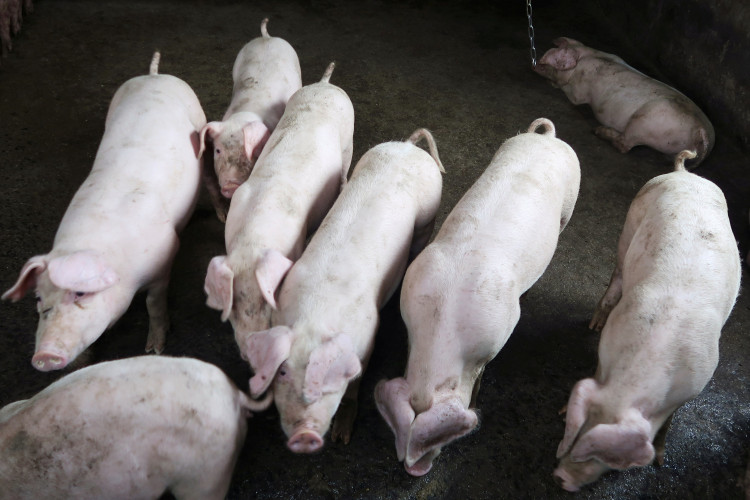The decline in China's production of pork caused prices to rise by up to 40 percent as importers purchase pork from overseas. The Chinese government imposed new slaughterhouse rules to battle the spread of the African swine fever in the country.
Consumers complain about the prices of pork in the market. One consumer said that he eats a lot less pork now because it is too expensive. China is the largest producer of pork and it consumes two-thirds of the world's pork. The African swine fever killed a large number of swine and hogs in many provinces in China.
The African swine fever was first reported in China's northeast region in August last year. According to the United Nations Food and Agriculture Organization, the contagious disease quickly spread in China and, since then, it killed approximately a million pigs as it spreads to 31 of the 34 provinces in China.
Dirk Pfeiffer, a veterinary epidemiologist at the City University of Hong Kong, said that the outbreak's scale is unprecedented. He added that it is probably the most complex animal disease that they have ever had to deal with.
Industry researchers believe that China's shortfall is likely to be so severe it will match Europe's annual pork output and exceed the United States production by 30%. Angela Zhang of IQC Insights said that everyone wants to import as much pork as possible. The low production of pork in China caused shortages in other markets as traders direct their imports to the country.
Recently, China imposed new rules that require slaughterhouses and processing plants to test for the African swine fever virus. Feng Yonghui, the chief analyst with Soozhu.com, said that the government is checking slaughterhouses, cold storage warehouses, and processing firms so nobody dares to buy pigs, kill pigs, or sell meat. The analyst added that live hog demand is fairly poor.
On March 1, the Ministry of Agriculture and Rural Affairs of China ordered slaughterhouses to run a test on each batch of hogs for the virus. The government also rolled out that the larger facilities need to install testing equipment by May 1 and all processors are required to comply by July 1. The ministry announced that they will conduct inspections to check up on them. The new rules caused delays to the processing of pork meat in the slaughterhouses.
Global supplies are expected to target China to supplement the demand caused by the disease. Many Chinese firms made their investments in farms and food processors abroad to capitalize the high demand.





